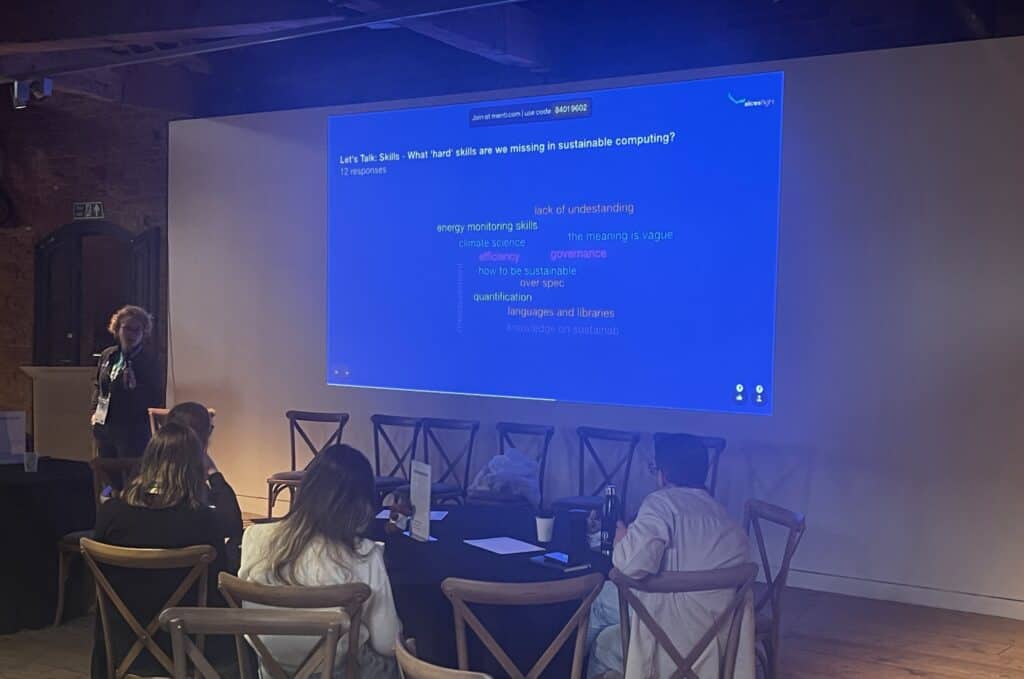At the recent Green Computing event, we had the opportunity to share insights on our collaborative project with Women in HPC (WHPC), titled “Move the Needle”. Cristin Merritt, CMO of Alces Flight, provided an interactive talk focusing on four key areas of social sustainability: Skills, Staffing, Engagement, and Long-term Impact.
Hosted by UK Research and Innovation (UKRI), the Green Computing event served as a dynamic forum for the exchange of ideas and insights. Industry leaders, academics, government representatives, and students gathered to discuss and promote social sustainability in HPC. The key takeaway from the event? Developing technical and soft skills, inclusive staffing, active engagement, and ensuring long-term impact can create a resilient and innovative HPC ecosystem. This holistic approach not only tackles environmental challenges but also fosters a supportive and inclusive community, driving sustainable advancements in HPC.
Bridging the Skills Gap
Our session highlighted the importance of a balanced approach to training. While technical skills are often prioritised, developing soft skills is equally vital. Participants shared their experiences and challenges in allocating budgets for training, revealing a tendency to favour technical skills over soft skills. This imbalance can hinder the holistic development needed for professionals to thrive in a dynamic and collaborative environment.
“Most things can be taught, we need people with the right attitude and mindset to get things done”
— Mark Bjonsgard
Developing a Competency Framework
A participant managing an HPC centre highlighted their use of skill gap analysis and a competency framework. Their focus was on the implementation of skill gap analysis and the creation of a competency framework. This framework, developed through team collaboration, identified the necessary technical and soft skills for various roles. By tailoring training programs to these competencies, the centre ensured continuous professional growth and adaptability, showcasing the value of involving all stakeholders in shaping effective training initiatives.
Addressing the Need for Clear Guidelines
In the realm of social sustainability in computing, there is a need for more defined guidelines and standards. Many participants voiced the challenges they face due to the inherent uncertainties in HPC, especially around what denotes ‘green computing.’ Clearer guidelines can provide a roadmap for sustainable practices, helping professionals navigate complexities and innovate responsibly. As Mark Bjonsgard highlighted, having the right mindset and attitude is crucial. Fostering a culture of continuous learning and adaptability, where professionals are encouraged to think creatively and develop novel solutions, is essential.
Embracing Collaboration and Risk-Taking
A collaborative work culture is vital in advancing research and development. By integrating different disciplines and viewpoints, we can address large-scale challenges more effectively. Creating an environment where employees feel safe to take risks and learn from their mistakes is equally important. This can be achieved through open communication, supportive feedback, and recognising the value of both successes and failures.
We are thankful to the UKRI for their invitation to host an open session for our Move the Needle Project, and we are grateful to the community for openly contributing their thoughts and ideas to our work.
See screenshots from the Q&A session here: Green Computing – Move the Needle Workshop (alces-flight.com)


